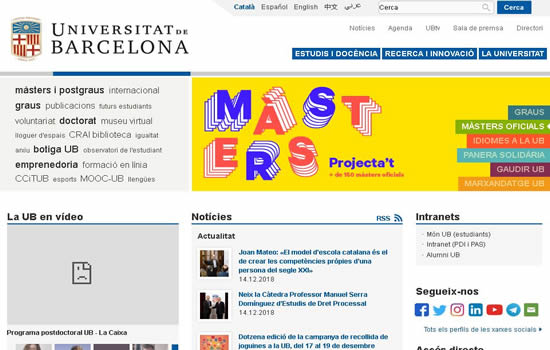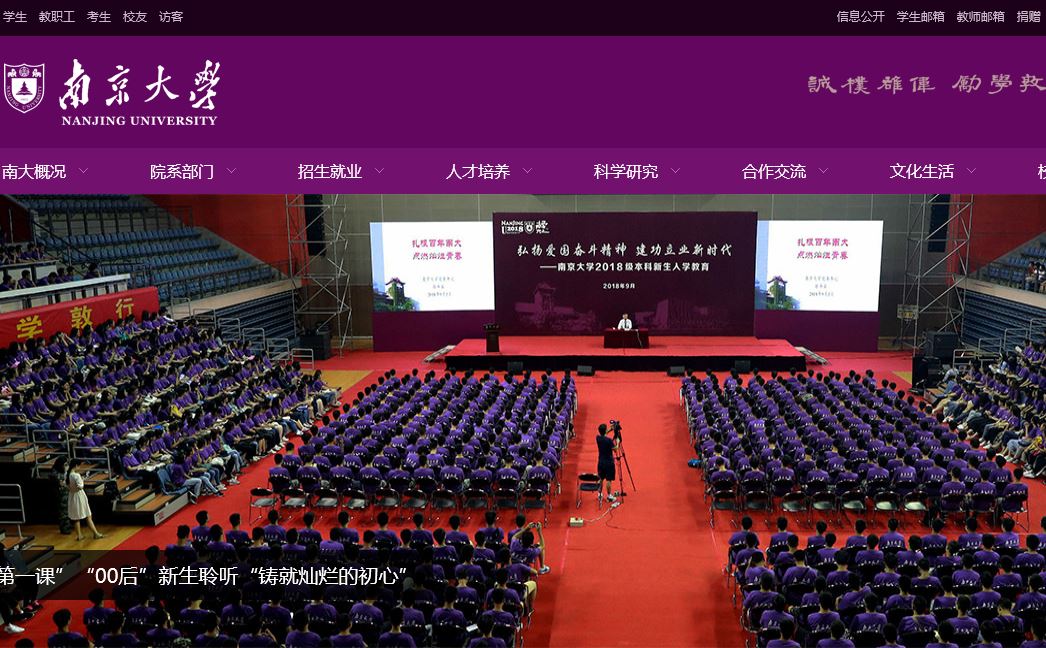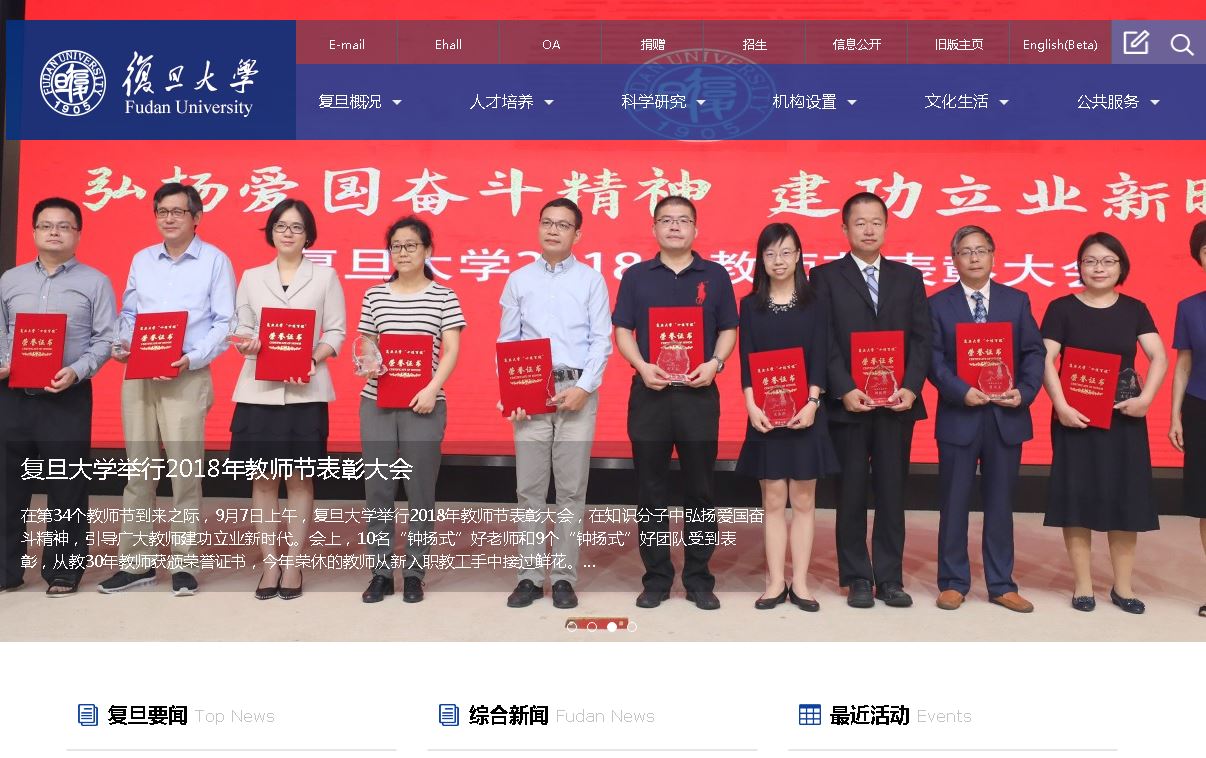选择热点
 荷兰莱顿大学
荷兰莱顿大学 西班牙巴塞罗那大学
西班牙巴塞罗那大学 巴西圣保罗大学 University of Sao Paulo, Brazil
巴西圣保罗大学 University of Sao Paulo, Brazil 台湾南华大学 University of South China in Taiwan
台湾南华大学 University of South China in Taiwan 科技大学 National University of Defense Technology
科技大学 National University of Defense Technology 南京大学 Nanjing University
南京大学 Nanjing University 上海复旦大学 Fudan University
上海复旦大学 Fudan University 泗水大学(Ubaya)
泗水大学(Ubaya) 印尼大学 universitas indonesia
印尼大学 universitas indonesia 越南某大学 Vietnam National University
越南某大学 Vietnam National University 菲律宾大学 University Of The Philippines
菲律宾大学 University Of The Philippines
电动汽车对地球更好吗?
发布时间:2025-01-06
来源:大学网站
Is an Electric Car Better for the Planet?
电动汽车对地球更好吗?
It depends on how we make electricity that power these cars.
這要看汽车电能的生产方式。
Which is better for Earth: an electric or gas-powered vehicle?
The answer to this question might seem blindingly1 obvious: Of course electric cars must be better for the environment, because they don’t have exhausts2 and so don’t emit greenhouse gases as they drive.
However, electric vehicles (EVs) aren’t perfect, and they come with their own set of polluting problems.
Notably, their batteries contain components, such as lithium, that require a significant amount of energy to source3 and extract.
电动汽车和汽油汽车,哪种对地球更好呢?
问题的答案似乎非常明显:当然,电动汽车一定更环保,因为它们没有排气管,行驶时不排放温室气体。
不过,电动汽车并非完美无缺,也存在它们特有的污染问题。
尤其要注意的是,电动汽车的电池含有锂等成分,探寻和提纯其原料需要消耗大量能源。
But battery production is just one part of an electric car’s life span.
A 2014 study published in the journal Proceedings of the National Academy of Sciences looked at the entire life cycle of an EV’s emissions, from mining the metals required for the batteries to producing the electricity needed to power them, and then compared this with the average emissions of a gas-powered vehicle.
The team found that when electric vehicles are charged with coal-powered electricity, they’re actually worse for the envir-onment than conventional gasoline cars.
可是,电池生产只是电动汽车生命周期的一个环节。
美国 国家科学院学报 2014年发表的一项研究考察了电动汽车气体排放的全生命周期——从开采金属来生产电池到发电来驱动汽车,然后和汽油汽车的平均排放量进行了比较。
该研究团队发现,电动汽车如果充的是煤电,对环境的危害实际上比传统汽油汽车更严重。
In much of the world, however, national grids are now clean enough for EVs to beat their gasoline-powered counterparts when it comes to pollution and greenhouse-gas emissions during their lifetimes.
尽管如此,说到生命周期内造成的污染和温室气体排放量,世界上大部分地区的国家电网目前已非常清洁了,足以让电动汽车胜过汽油汽车。
Only when connected to the dirtiest, coal-heavy electric grids do gasoline internal combustion engines become comparable to EVs on a greenhouse gas basis,” said Colin Sheppard, a researcher with expertise in energy and transportation systems engineering at the Lawrence Berkeley National Laboratory in California.
加州勞伦斯伯克利国家实验室能源与运输系统工程专业研究员科林·谢泼德讲道:电动汽车只有在和清洁度最低、严重依赖燃煤的电网相连的情况下,其温室气体排放量才跟汽油汽车内燃机不相上下。
”China’s grid is improving with more investments in renewables, and it builds more solar panels per year than any other countries, according to Nature magazine.
根据 自然 杂志所述,中国电网加大可再生能源的投资,清洁度随之提高。
每年新建太阳能面板超过其他任何国家。
This pattern of improvement—more renewable energies and fewer fossil fuels—is a global one and it helps to boost the environmental credentials4 of electric vehicles,” said Gordon Bauer, an electric vehicle researcher at the International Council on Clean Transportation in San Francisco.
As grids become greener during the lifetime of an electric vehicle, it’s only going to get better.
”多用可再生能源,少用化石燃料,这一改良模式是全球性的,有助于提升电动汽车的环保资质。
”旧金山国际清洁交通委员会电动汽车研究员戈登·鲍尔如是说,在电动汽车生命周期之内,随着电网越来越绿色,情况只会越来越好。
”In a study published in the journal Environmental Science and Technology, Sheppard modeled a hypothetical future scenario in which all cars were electric.
We wanted to understand what the energy, infrastructure and emissions implications might be if all passenger vehicles are electrified,” Sheppard told Live Science.
Bauer also collaborated with Sheppard on the project.
Their findings come out strongly in favor of an electric vehicle future.
美国 环境科学与技术 杂志发布的一项研究显示,谢泼德对所有汽车皆电动这一假设性的未来场景进行了建模。
他对趣味科学网说:我们想搞清楚,如果所有乘用车都是电动,可能会对能源、基础设施和排放量产生什么影响?
”与谢泼德合作开展此项研究的还有鲍尔。
他们的研究成果表明电动汽车未来发展前景光明。
For example, Sheppard calculated that if all privately owned vehicles in the U.
S.
were electric, it would reduce greenhouse-gas emissions in the country by 46% annually (0.
5 gigatons5 of carbon dioxide) compared with conventionally gas-powered cars.
This reduction could be increased even further if those vehicles were subject to so-called controlled charging,” a technique also known as smart charging,” in which vehicles are recharged at strategically chosen times to minimize the financial cost of generating electricity.
(For instance, charging at night is often less pricey than during the day; this strategy also favors more efficient energy-producing plants that produce cheaper electricity.
) If all privately owned electric cars were charged in such a way, the emissions savings could rise to 49% annually.
例如,根据谢泼德的计算,如果美国所有私家车都是电动的,那么和传统汽油汽车相比,美国每年可减排温室气体46%(5亿吨二氧化碳)。
如果采用所谓的受控充电”(亦称智能充电”)技术,减排量还可进一步提高。
受控充电”是指策略性地选择充电时间,以最大限度降低发电成本。
(例如,晚间充电通常比白天便宜。
这一策略也有利于发电效率较高、电价较低的能源生产企业。
)如果所有私家电动车都采取这一充电技术,每年的减排量则会提高到49%。
These estimates are based on what Sheppard admits is an ambitious” imagining of the U.
S.
’s future energy portfolio.
This future envisions a country with a lot more renewable energy, but which still hasn’t reached the goal of zero carbon, or having a national grid that doesn’t contribute to climate change, he said.
There is a considerable amount of political will and practical change that needs to happen to make this scenario possible, but it’s still helpful to map out the full theoretical potential of electric vehicles under these circumstances.
谢泼德承认,上述估算是基于对美国未来能源组合的大胆”想象做出的。
他表示,在这一设想下,未来的美国将拥有更多可再生能源,但仍无法达成零碳目标,或拥有对气候变化不会产生负面影响的国家电网。
要让这样的场景成为现实,需要十分强大的政治意志和切实可行的变革。
不过,在这些条件下从理论上对电动汽车的一切可能性进行规划也是有裨益的。
In short, it’s far easier to argue in favor of buying an EV than a gas- or diesel-powered vehicle from an envir-onmental perspective.
But what about cost?
Aren’t electric vehicles too expensive for most people to afford?
简而言之,从环境角度看,相对于汽油车或柴油车来说,提倡人们购买电动汽车就容易多了。
但是,从价格上看又会如何?
电动汽车是不是贵得让多数人买不起?
A 2020 report from the consumer rights group, Consumer Reports, suggests this is also changing.
The paper estimated that the per-mile repair and maintenance costs over the lifetime of an EV is a little less than half that of traditional vehicles with internal combustion engines.
This is largely because electric motors have just one moving part, compared to traditional engines which often have dozens.
This means fewer components need to be replaced in an EV, resulting in significant savings albeit6 not at the point of sale.
消费者权益组织 消费者报告 杂志2020年发布的报告表明,上述情况也正在改变。
据该报告估算,电动汽车生命周期内每英里的维修保养费用还不到传统燃油汽车的一半。
这主要是因为传统引擎通常有数十个部件,而电动机只有一个活动部件。
也就是说,电动汽车需要更换的部件更少一些,即便卖得不便宜,维护也能节省不少费用。
It may sound radical right now, but by the time 2030 rolls around7, I think the problem will be about how quickly manufacturers can make them,” Bauer said.
鲍尔表示:眼下听起来可能很激进,但我认为,到了2030年,就怕制造商的产出速度跟不上了。
”In a recent U.
S.
-wide analysis carried out by Bauer, he concluded that the high rate of depreciation8 for new electric vehicles will lead to larger benefits for lower-income households that are more likely to buy used cars.
This, along with other factors driving price reductions, such as technological innovations and increased supplier competition, will mean that an EV should cost the same as a conventional gasoline-powered car for almost all income levels by approximately 2029, Bauer found.
Furthermore, Bauer calculated that by 2030, low-income households in the U.
S.
stand to9 save $1,000 per year from fuel savings if they were to switch to an EV.
新近,鲍尔对全美的情况进行了一次分析。
他的结论是,新款电动汽车折旧率高,这将会给更可能买二手车的低收入家庭带来更多好处。
据他发现,伴随技术创新、供应商竞争加剧等其他降价因素,折旧率高则意味着到2029年前后,对差不多所有收入阶层来说,电动汽车的价格会和传统汽油汽车持平。
还有,据鲍尔估算,到2030年,美国低收入家庭假如都改用电动汽车,每年便可节省加油费1000美元。
【电动汽车对地球更好吗?查看网站:[db:时间]】
电动汽车对地球更好吗?
It depends on how we make electricity that power these cars.
這要看汽车电能的生产方式。
Which is better for Earth: an electric or gas-powered vehicle?
The answer to this question might seem blindingly1 obvious: Of course electric cars must be better for the environment, because they don’t have exhausts2 and so don’t emit greenhouse gases as they drive.
However, electric vehicles (EVs) aren’t perfect, and they come with their own set of polluting problems.
Notably, their batteries contain components, such as lithium, that require a significant amount of energy to source3 and extract.
电动汽车和汽油汽车,哪种对地球更好呢?
问题的答案似乎非常明显:当然,电动汽车一定更环保,因为它们没有排气管,行驶时不排放温室气体。
不过,电动汽车并非完美无缺,也存在它们特有的污染问题。
尤其要注意的是,电动汽车的电池含有锂等成分,探寻和提纯其原料需要消耗大量能源。
But battery production is just one part of an electric car’s life span.
A 2014 study published in the journal Proceedings of the National Academy of Sciences looked at the entire life cycle of an EV’s emissions, from mining the metals required for the batteries to producing the electricity needed to power them, and then compared this with the average emissions of a gas-powered vehicle.
The team found that when electric vehicles are charged with coal-powered electricity, they’re actually worse for the envir-onment than conventional gasoline cars.
可是,电池生产只是电动汽车生命周期的一个环节。
美国 国家科学院学报 2014年发表的一项研究考察了电动汽车气体排放的全生命周期——从开采金属来生产电池到发电来驱动汽车,然后和汽油汽车的平均排放量进行了比较。
该研究团队发现,电动汽车如果充的是煤电,对环境的危害实际上比传统汽油汽车更严重。
In much of the world, however, national grids are now clean enough for EVs to beat their gasoline-powered counterparts when it comes to pollution and greenhouse-gas emissions during their lifetimes.
尽管如此,说到生命周期内造成的污染和温室气体排放量,世界上大部分地区的国家电网目前已非常清洁了,足以让电动汽车胜过汽油汽车。
Only when connected to the dirtiest, coal-heavy electric grids do gasoline internal combustion engines become comparable to EVs on a greenhouse gas basis,” said Colin Sheppard, a researcher with expertise in energy and transportation systems engineering at the Lawrence Berkeley National Laboratory in California.
加州勞伦斯伯克利国家实验室能源与运输系统工程专业研究员科林·谢泼德讲道:电动汽车只有在和清洁度最低、严重依赖燃煤的电网相连的情况下,其温室气体排放量才跟汽油汽车内燃机不相上下。
”China’s grid is improving with more investments in renewables, and it builds more solar panels per year than any other countries, according to Nature magazine.
根据 自然 杂志所述,中国电网加大可再生能源的投资,清洁度随之提高。
每年新建太阳能面板超过其他任何国家。
This pattern of improvement—more renewable energies and fewer fossil fuels—is a global one and it helps to boost the environmental credentials4 of electric vehicles,” said Gordon Bauer, an electric vehicle researcher at the International Council on Clean Transportation in San Francisco.
As grids become greener during the lifetime of an electric vehicle, it’s only going to get better.
”多用可再生能源,少用化石燃料,这一改良模式是全球性的,有助于提升电动汽车的环保资质。
”旧金山国际清洁交通委员会电动汽车研究员戈登·鲍尔如是说,在电动汽车生命周期之内,随着电网越来越绿色,情况只会越来越好。
”In a study published in the journal Environmental Science and Technology, Sheppard modeled a hypothetical future scenario in which all cars were electric.
We wanted to understand what the energy, infrastructure and emissions implications might be if all passenger vehicles are electrified,” Sheppard told Live Science.
Bauer also collaborated with Sheppard on the project.
Their findings come out strongly in favor of an electric vehicle future.
美国 环境科学与技术 杂志发布的一项研究显示,谢泼德对所有汽车皆电动这一假设性的未来场景进行了建模。
他对趣味科学网说:我们想搞清楚,如果所有乘用车都是电动,可能会对能源、基础设施和排放量产生什么影响?
”与谢泼德合作开展此项研究的还有鲍尔。
他们的研究成果表明电动汽车未来发展前景光明。
For example, Sheppard calculated that if all privately owned vehicles in the U.
S.
were electric, it would reduce greenhouse-gas emissions in the country by 46% annually (0.
5 gigatons5 of carbon dioxide) compared with conventionally gas-powered cars.
This reduction could be increased even further if those vehicles were subject to so-called controlled charging,” a technique also known as smart charging,” in which vehicles are recharged at strategically chosen times to minimize the financial cost of generating electricity.
(For instance, charging at night is often less pricey than during the day; this strategy also favors more efficient energy-producing plants that produce cheaper electricity.
) If all privately owned electric cars were charged in such a way, the emissions savings could rise to 49% annually.
例如,根据谢泼德的计算,如果美国所有私家车都是电动的,那么和传统汽油汽车相比,美国每年可减排温室气体46%(5亿吨二氧化碳)。
如果采用所谓的受控充电”(亦称智能充电”)技术,减排量还可进一步提高。
受控充电”是指策略性地选择充电时间,以最大限度降低发电成本。
(例如,晚间充电通常比白天便宜。
这一策略也有利于发电效率较高、电价较低的能源生产企业。
)如果所有私家电动车都采取这一充电技术,每年的减排量则会提高到49%。
These estimates are based on what Sheppard admits is an ambitious” imagining of the U.
S.
’s future energy portfolio.
This future envisions a country with a lot more renewable energy, but which still hasn’t reached the goal of zero carbon, or having a national grid that doesn’t contribute to climate change, he said.
There is a considerable amount of political will and practical change that needs to happen to make this scenario possible, but it’s still helpful to map out the full theoretical potential of electric vehicles under these circumstances.
谢泼德承认,上述估算是基于对美国未来能源组合的大胆”想象做出的。
他表示,在这一设想下,未来的美国将拥有更多可再生能源,但仍无法达成零碳目标,或拥有对气候变化不会产生负面影响的国家电网。
要让这样的场景成为现实,需要十分强大的政治意志和切实可行的变革。
不过,在这些条件下从理论上对电动汽车的一切可能性进行规划也是有裨益的。
In short, it’s far easier to argue in favor of buying an EV than a gas- or diesel-powered vehicle from an envir-onmental perspective.
But what about cost?
Aren’t electric vehicles too expensive for most people to afford?
简而言之,从环境角度看,相对于汽油车或柴油车来说,提倡人们购买电动汽车就容易多了。
但是,从价格上看又会如何?
电动汽车是不是贵得让多数人买不起?
A 2020 report from the consumer rights group, Consumer Reports, suggests this is also changing.
The paper estimated that the per-mile repair and maintenance costs over the lifetime of an EV is a little less than half that of traditional vehicles with internal combustion engines.
This is largely because electric motors have just one moving part, compared to traditional engines which often have dozens.
This means fewer components need to be replaced in an EV, resulting in significant savings albeit6 not at the point of sale.
消费者权益组织 消费者报告 杂志2020年发布的报告表明,上述情况也正在改变。
据该报告估算,电动汽车生命周期内每英里的维修保养费用还不到传统燃油汽车的一半。
这主要是因为传统引擎通常有数十个部件,而电动机只有一个活动部件。
也就是说,电动汽车需要更换的部件更少一些,即便卖得不便宜,维护也能节省不少费用。
It may sound radical right now, but by the time 2030 rolls around7, I think the problem will be about how quickly manufacturers can make them,” Bauer said.
鲍尔表示:眼下听起来可能很激进,但我认为,到了2030年,就怕制造商的产出速度跟不上了。
”In a recent U.
S.
-wide analysis carried out by Bauer, he concluded that the high rate of depreciation8 for new electric vehicles will lead to larger benefits for lower-income households that are more likely to buy used cars.
This, along with other factors driving price reductions, such as technological innovations and increased supplier competition, will mean that an EV should cost the same as a conventional gasoline-powered car for almost all income levels by approximately 2029, Bauer found.
Furthermore, Bauer calculated that by 2030, low-income households in the U.
S.
stand to9 save $1,000 per year from fuel savings if they were to switch to an EV.
新近,鲍尔对全美的情况进行了一次分析。
他的结论是,新款电动汽车折旧率高,这将会给更可能买二手车的低收入家庭带来更多好处。
据他发现,伴随技术创新、供应商竞争加剧等其他降价因素,折旧率高则意味着到2029年前后,对差不多所有收入阶层来说,电动汽车的价格会和传统汽油汽车持平。
还有,据鲍尔估算,到2030年,美国低收入家庭假如都改用电动汽车,每年便可节省加油费1000美元。
【电动汽车对地球更好吗?查看网站:[db:时间]】
- 上一篇: 时尚话题教程汇总和更新
- 下一篇: 狮子座(7月23日至8月22日)的幸运色:橙色或金色
相关阅读
目录列表
资讯列表
英语资讯


共0条评论
网友评论温馨提示:您的评论需要经过审核才能显示,请文明发言!